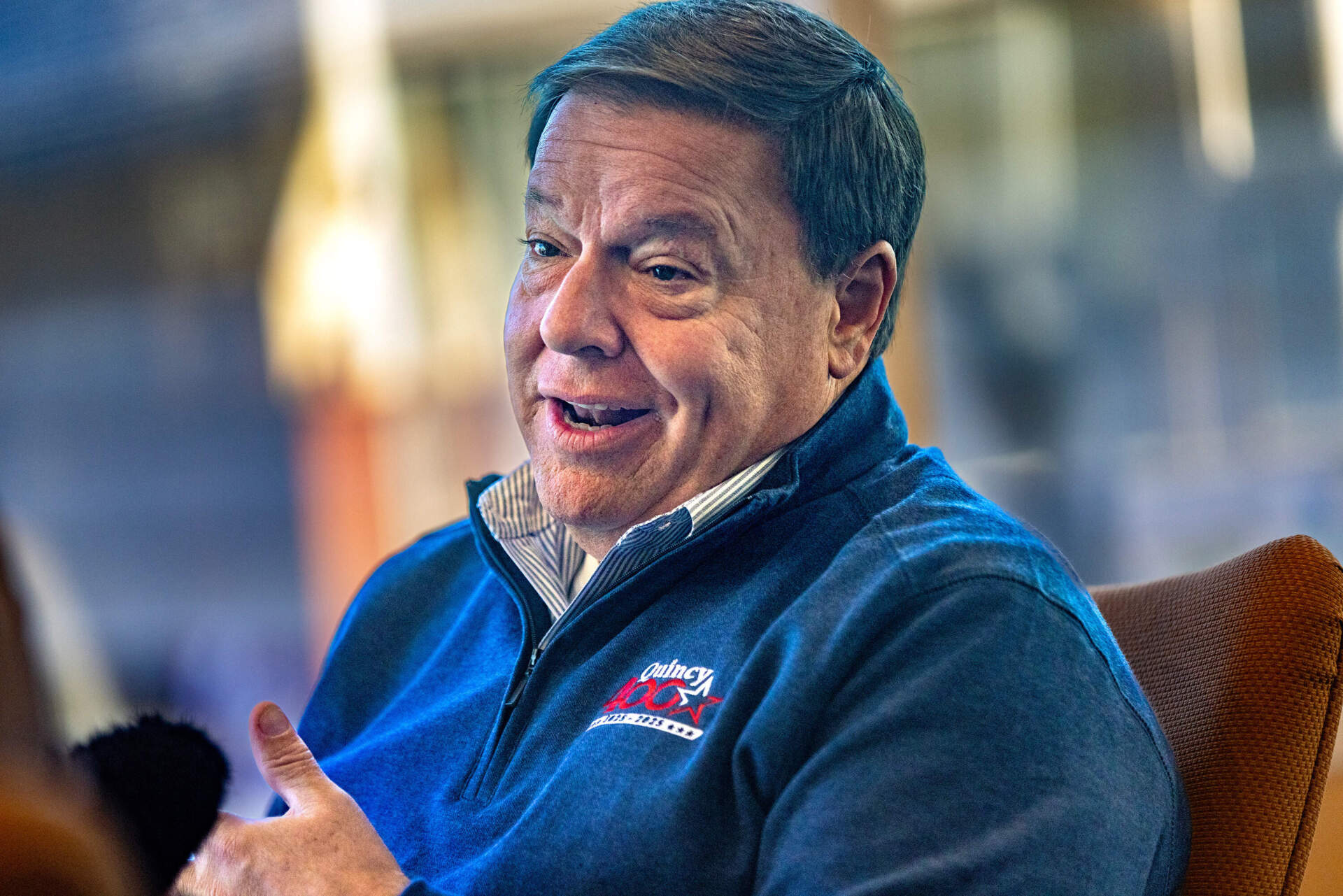
When Quincy Mayor Thomas Koch talks about the controversial Catholic statues he ordered for the city’s new police and fire headquarters — without public input — he still seems surprised at the political uproar.
“I guess I never thought it through in that regard,” he said.
The city’s longest-serving mayor likes to have a say in building design, and he had big plans for this edifice: columns and arches, granite and brick, copper and slate and “gorgeous light fixtures.” The finishing touch would be the two 10-foot bronze statues.
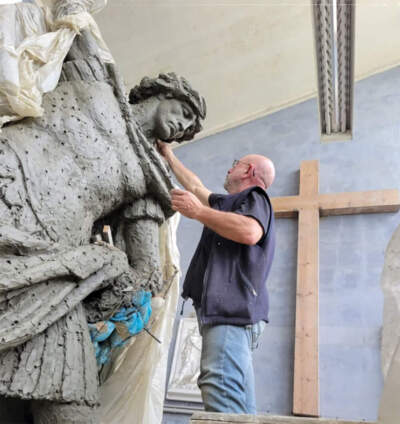
“Great public buildings historically had great artwork,” Koch said. “A lot of people are going to see this building.”
But the decision to commission the $850,000 statues — St. Michael, patron saint of police, and St. Florian, patron saint of firefighters — has drawn local anger, a lawsuit and national attention over the expense and constitutional issues. The blowback over this and other recent controversies could shift the makeup of the Quincy City Council, as nearly every seat is being contested in Tuesday’s election.
“Would I do it differently now? Looking at it, yeah,” Koch said of the statues in a wide-ranging interview. “Probably have more discussions about it, sure.”
Koch is an old-school mayor who enjoys largely unchecked power in this historically blue-collar city of 103,000. The city council rarely pushes back on his initiatives. And he still wants the statues. For now, a judge has ruled they must stay in storage while the lawsuit plays out.
Koch is standing his ground, saying he doesn’t have to ask permission for every move he makes: “It’s the mayor and council that direct things,” Koch said. “People elect us in these positions to make decisions.”
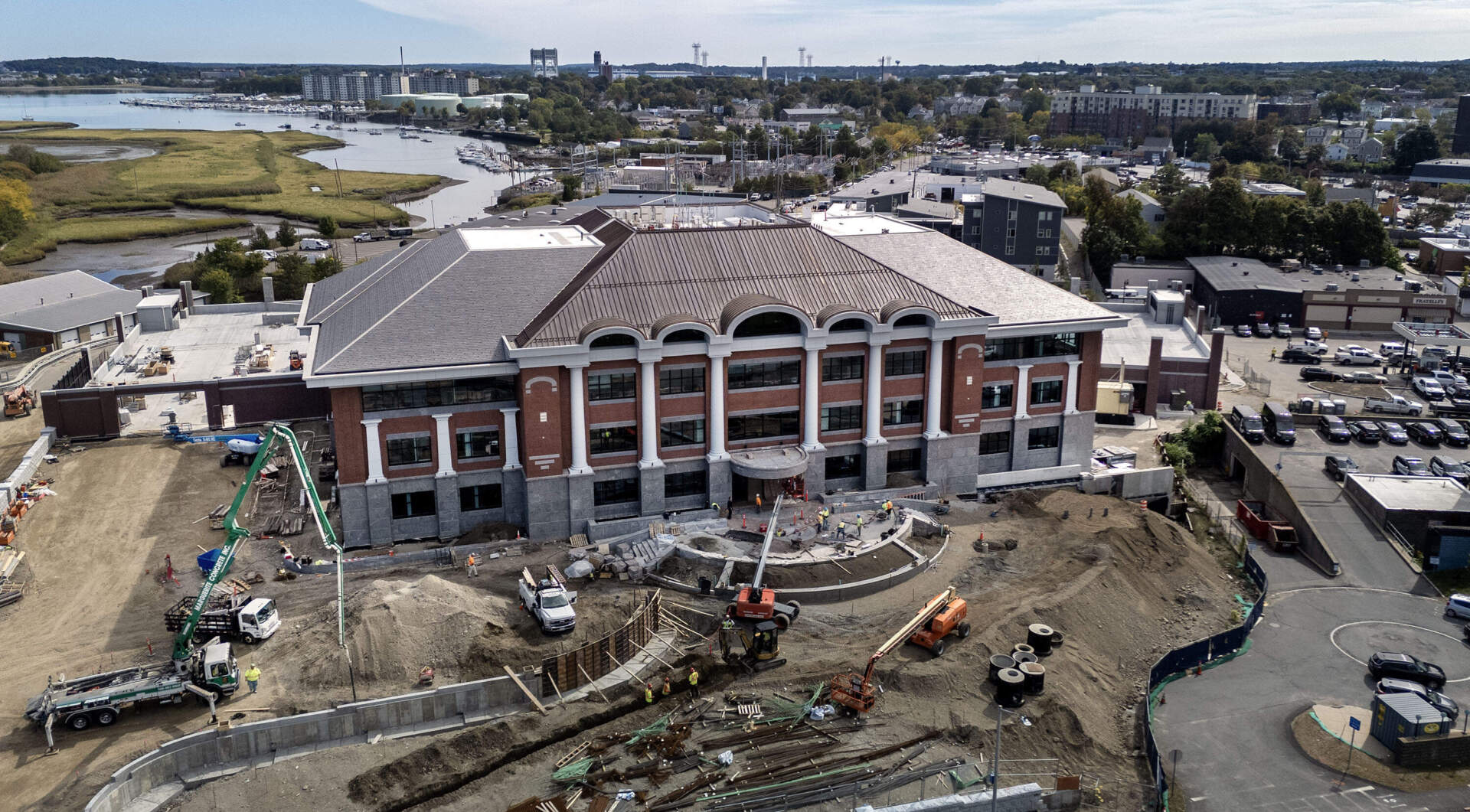
A self-styled iconoclast
Koch’s office on the top floor of City Hall is covered in political memorabilia and Catholic images. From a row of massive windows, he looks down at the fountains in the Hancock-Adams Common that he redeveloped, flanked by statues of John Hancock and John Adams. Downtown buildings are draped in red, white and blue bunting for the city’s 400-year anniversary.
“It wasn’t always like this,” the seven-term mayor said.
Koch touts Quincy as a city on the rise, ticking off his record of building schools, replacing sewer lines, raising seawalls, fixing roads.
“We’re doing all of these things,” Koch said. “It’s unheard of. Try to compare this to any other community in Massachusetts.”
The city has also racked up $1.6 billion in debt on Koch’s watch, putting pressure on Quincy’s debt rating on Wall Street.
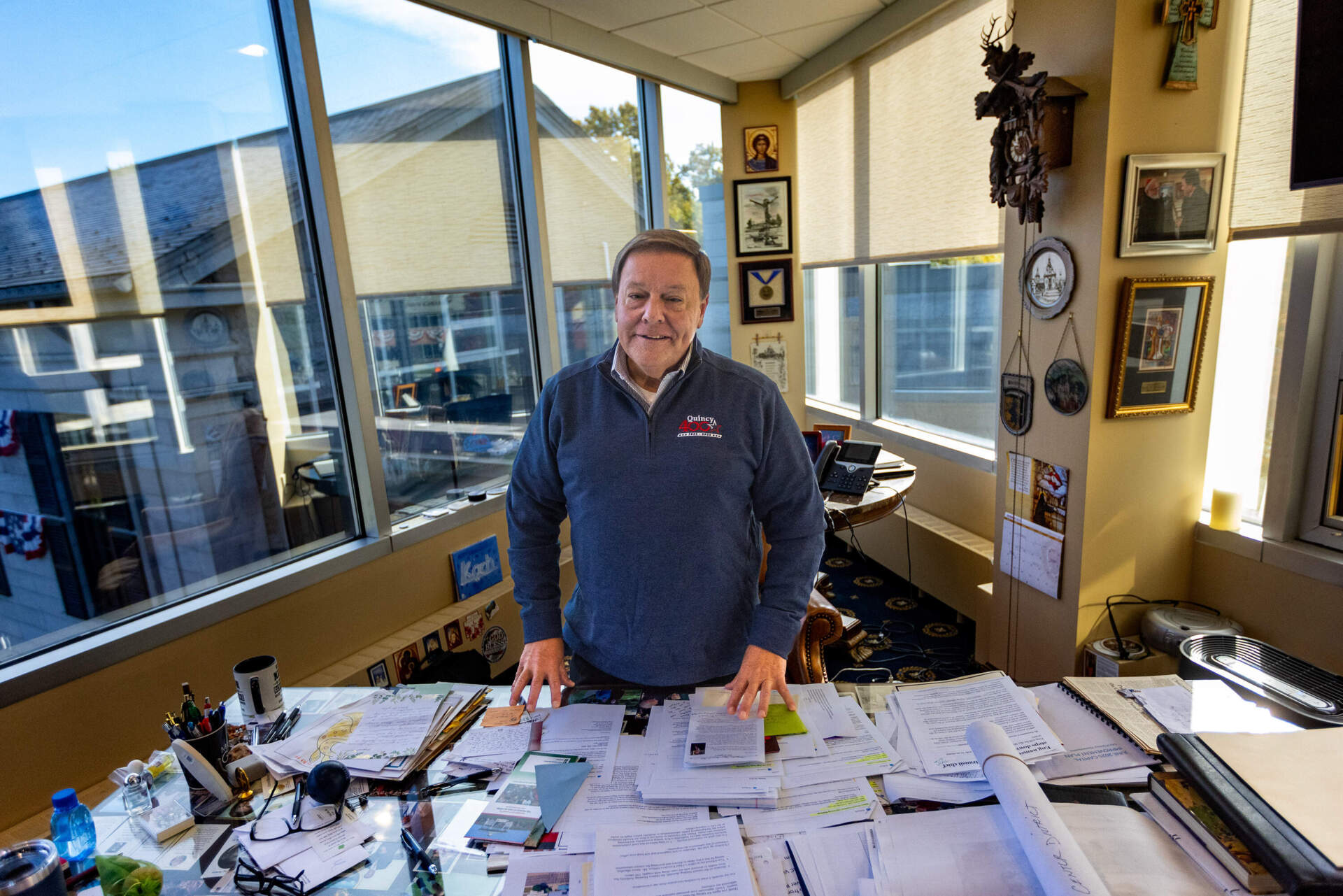
A former Democrat who left the party over its stance on abortion rights, Koch, 62, is now unenrolled and describes himself as a social conservative. When asked if he voted for President Trump, he hedged (“It’s a secret ballot”) saying he agrees with some Trump policies but not others.
Koch’s politics put him out of step with many Massachusetts leaders. Still, he operates on relationships with some of the most powerful figures in the state.
He won the support of Gov. Maura Healey and Attorney General Andrea Campbell in his last re-election, and he calls former Gov. Charlie Baker a friend.
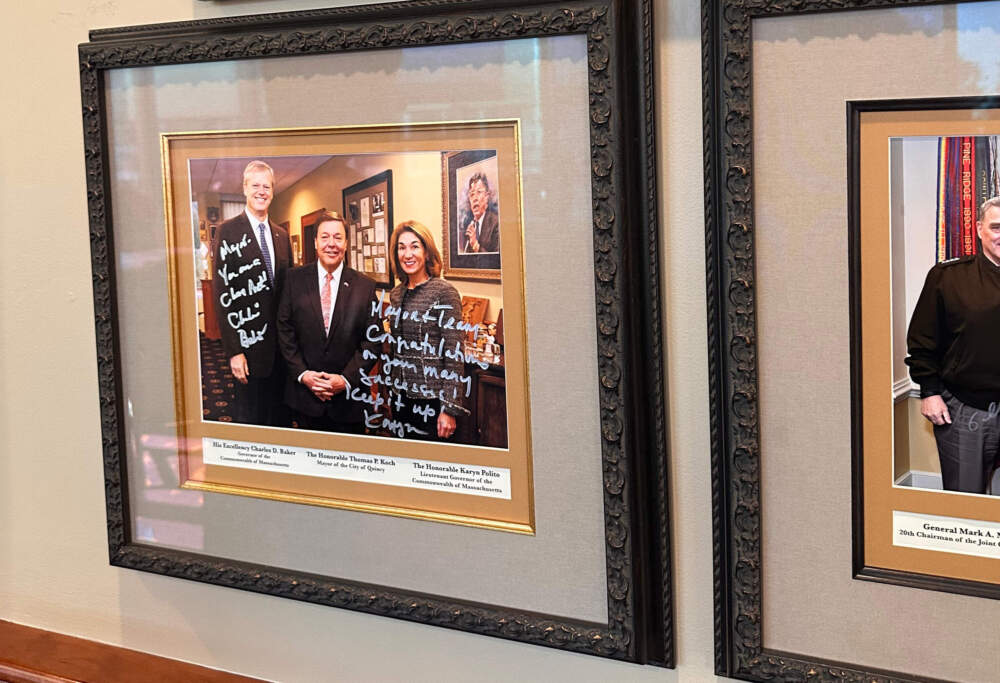
He got $25 million from the state for a hospital garage, thanks in part to House Speaker and Quincy Rep. Ron Mariano. Back in the day, he was in regular contact with Boston’s mayors, whether in phone calls with Tom Menino or breakfasts with Marty Walsh, he said.
But when it comes to Mayor Michelle Wu, Koch said they have “no relationship.”
“I have nothing against Mayor Wu. I wish her well. She’s got a tough job,” he said. “But we just don’t have the connection.”
Long Island Bridge
That lack of closeness is playing out as Koch flexes his muscles in another legal battle. He’s blocking Boston’s effort to rebuild a bridge for an addiction recovery campus on Long Island in Boston Harbor. The span is a priority for Wu amid mounting pressure to tackle problems of homelessness, addiction and crime in the area around Massachusetts Avenue and Melnea Cass Boulevard.
Koch said it’s the bridge’s construction and potential traffic he opposes, but he’s also putting his thumb on the scale because he simply disagrees with the effort.
“Boston’s got a big land area. Why do we have to have an island?” he said. “It’s almost like putting lepers out there and get them away, get them out of sight.”
Koch said the project costs too much, though it’s not his city’s expense. If Boston has to use the island, Koch said it should run a ferry service instead of building a bridge.
“I’m going to do everything I can to keep you from building a bridge,” Koch said he once told Walsh when he was mayor.
It’s a display of chutzpah for the mayor of a small city that benefits from its proximity to Boston.
What’s a mayor worth?
In Quincy, Koch is embroiled in yet another fight. He’s in a legal and political battle over a 79% pay hike that would have bumped his salary to $285,000 and made him one of the highest-paid mayors in the country. A group of residents is suing the city for rejecting a ballot proposal to halt the pay raise.
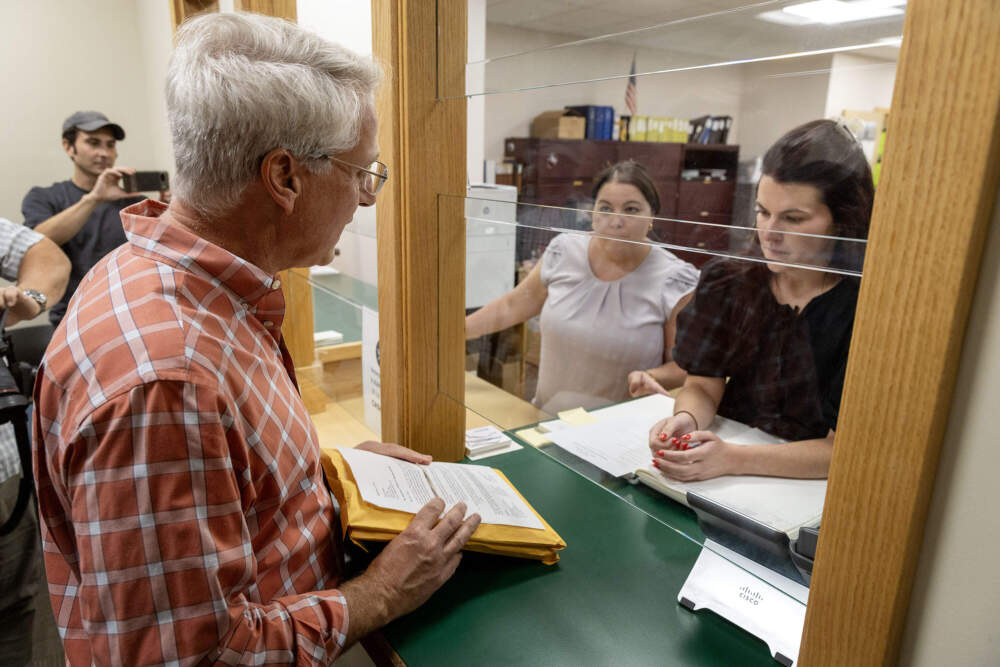
“You have this mayor that over time became very arrogant,” said Jeff Berry, a political scientist who taught at Tufts University for five decades. “Why did he think he could get away with raising his salary by an astronomical sum?”
Koch counters that he’s had just one pay raise in 17 years, and that he essentially wears two hats — that of a mayor and a city manager, and he’s on duty 24/7. He also said he’s paid less than hundreds of city of Quincy employees; many of those are in the police and fire departments.
“I didn’t come into this job looking to make a lot of money,” Koch said. “That was never my intention at all. But in reality, every mayor is way underpaid.”
With less than a week to go before the city council election, Koch did a turnabout, proposing to amend the salary hike to $225,000 (a 40% increase over his current $159,000 salary). Critics say he reversed course to spare his allies in the council from paying a price in Tuesday’s election.
“I didn’t come into this job looking to make a lot of money. That was never my intention at all. But in reality, every mayor is way underpaid.”
Quincy Mayor Thomas Koch
Anne Mahoney is among those looking to challenge the Koch agenda. She ran unsuccessfully against the mayor in the last election, and now she’s running to rejoin the council.
“People are basically saying, ‘No, this raise is wrong. The statues are wrong. The way we’re spending money is wrong. Our taxes are wrong,’” she said. “We shouldn’t find out from a story that was leaked about money being spent on statues.”
The council has become a rubber stamp for Koch’s policies, said Joe Murphy, co-founder of a group called A Just Quincy and a plaintiff in the pay-raise lawsuit.
“We did the math — (over) the last few years, there’s a 99-point-something agreement rate in city council,” Murphy said. “Now, how can that be? That goes to show you right there that nobody is thinking critically.”
Several Quincy city councilors contacted by WBUR did not return requests for comment.
A regular at funerals
For all the controversial headlines, Koch is a master of retail politics. He’s spent a lifetime as a public servant in Quincy, following in his father’s path, and has kept a lock on the top job at City Hall. His calendar offers hints about how he connects with constituents. Over a five-month period this year, Koch had 43 wakes and 17 funerals on his agenda. There were rites for a retired state trooper, numerous veterans, a Teamsters driver, a history teacher.
One afternoon in early June, there were three wakes on his calendar — and the next morning, back-to-back funerals.
Berry, the political observer, said that’s a good use of time for a politician.
“People see you at the service or the wake,” he said. “You do that and you make friends with everybody in that family, not just the bereaved widow or widower.”
Asked about his condolence-laden schedule, Koch recited a bit of advice from a friend.
“The greatest gift you can give a grieving family is your presence,” he said. “So I try to be there for people.”
Koch has sent $32,000 worth of flowers to constituents this year from campaign funds, in sympathy and for holidays.
City workers give big to Koch campaign
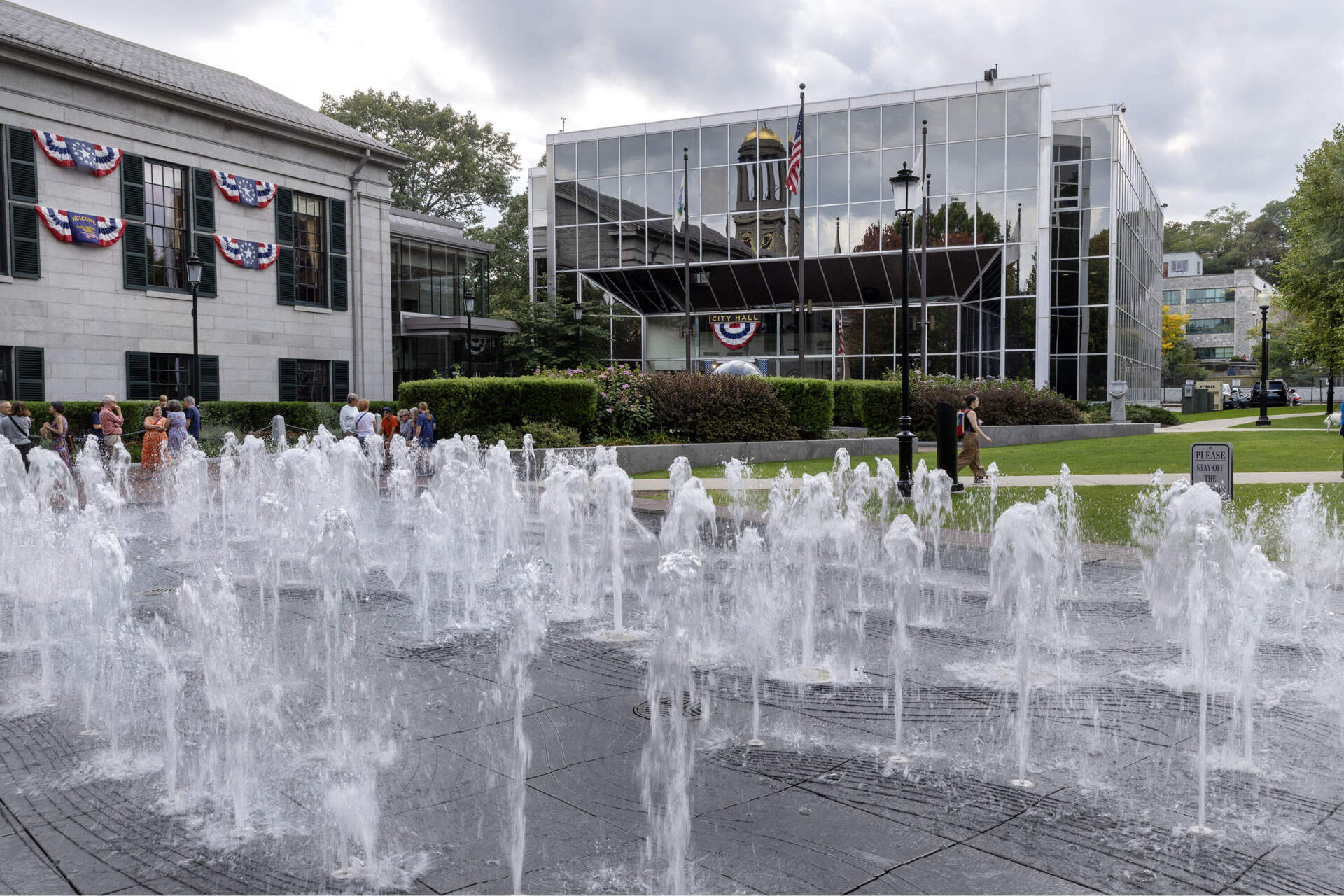
The mayor is coy about whether he’ll run for an eighth term in 2027. But his campaign has raised $272,000 this year, and he’s spent $54,000 on campaign consultants.
He gets regular campaign contributions from top lieutenants, secretaries, firefighters and crossing guards. Records show city employees gave nearly half a million dollars in donations over the past decade — about 13% of the $3.7 million total.
“It’s common for municipal workers to contribute to a mayor, but it’s uncommon that they would be a big segment of the overall donation pool,” Berry said.
Koch shrugs off questions about whether city workers feel pressured to contribute.
“I’ve never put any pressure on anybody,” he said.
Koch recalled another reporter asking why his donations were largely from family members, city employees and people that do business with City Hall.
“I said, ‘Well, who else is gonna give me money?’ I mean, it’s flip and fresh, but really, who else is going to donate?”
Records show he peppers the money he raises across an array of nonprofits: Rotary Club, the Quincy Historical Society, the Sons of Italy, the United Way cornhole tournament.
“We get hit up all the time by booster clubs, sports teams, charitable organizations. So you’re constantly writing checks to people and I’m fine doing that, but it’s just the process,” he said.
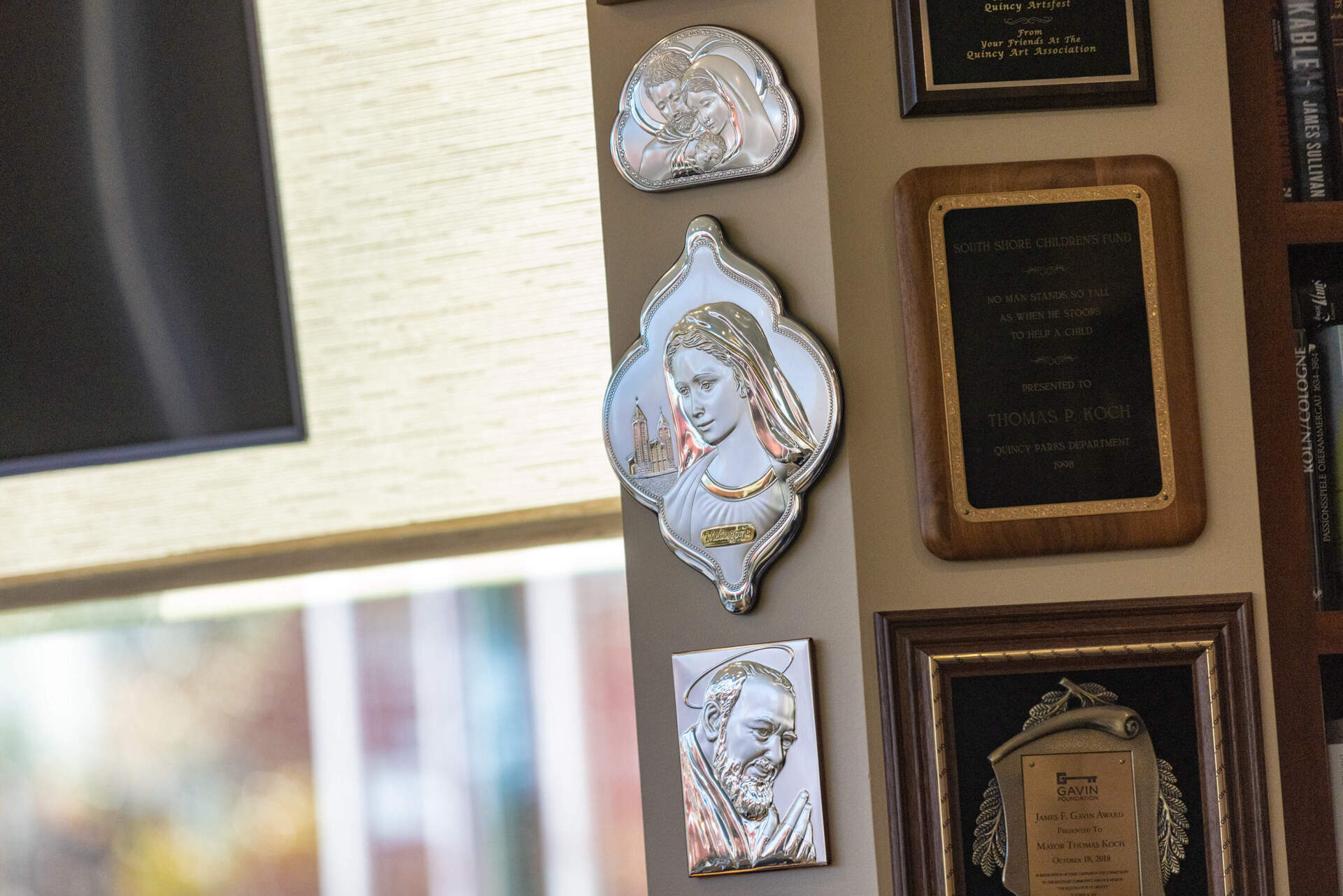
Koch’s Catholicism is also apparent in his campaign expenditures: $500 to St. John’s Seminary; $1,000 to the Catholic Community Fund; $1,500 to Friends of the Unborn.
The mayor has responded to some public pressure in recent weeks.
He apologized for comments he made on WBZ, suggesting the sex abuse scandal in the Catholic church was overblown and that accused priests were mainly gay, not pedophiles, and that abuse happens just as often among teachers and coaches as priests.
As for the statues of St. Michael and St. Florian, Koch said the first responders are all for them, and the police chief says that’s true.
“Those are their guys,” Koch said. “This wasn’t St. Paul and St. Peter. These were images that they connected to. It wasn’t like Tom Koch imposed these figures on them at all.”
For now, he said, the statues are on a ship that departed from Italy, en route to Quincy, where they may sit in storage until Koch’s legal battles are won or lost.
WBUR’s Ally Jarmanning contributed to this report.

اترك تعليقاً